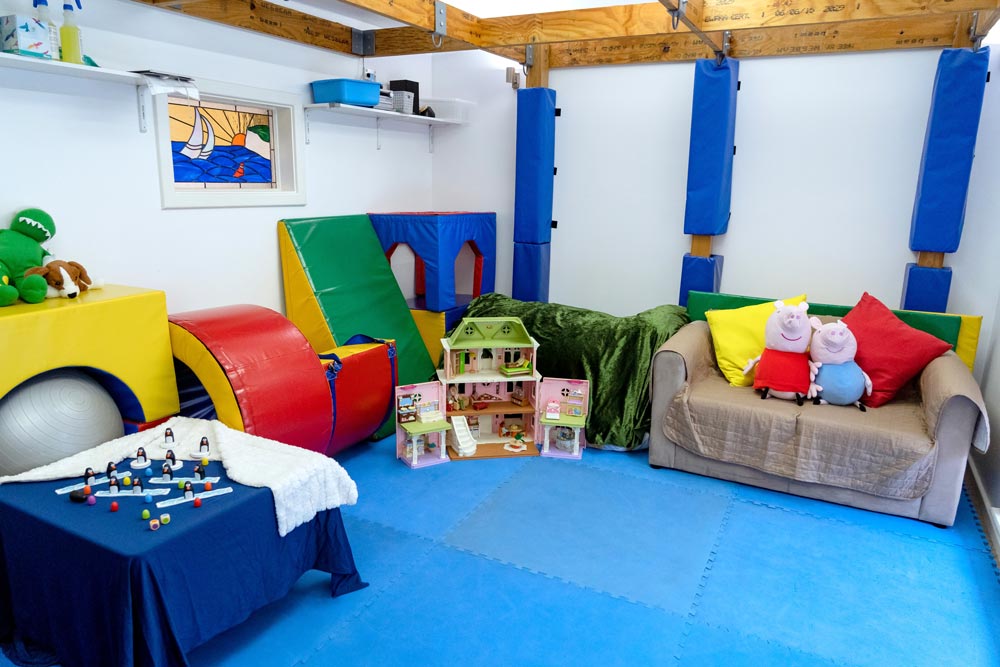At My Therapy House® we use an evidence-based relationship-centered developmental approach taking into consideration each child’s and family’s individual differences. We use principles of attachment theory and believe that all human beings are wired for love and belonging.
Many children on the Autism Spectrum experience sensory challenges. They have reported that interacting with others may be overwhelming for them due to environmental triggers including others wearing perfumes they may not be able to tolerate, speaking at particular rates and pitches that may affect their auditory processing, moving a particular way, wearing particular textures or colours of clothing, that may be too overwhelming to touch or look at.

These sensory challenges are usually triggered unintentionally and unknowingly by the people who love them and care for them. They can cause challenges in regulating, connecting, sharing attention and engaging with someone. Often these challenges may result in anxiety, which also may be triggered by not being able to read other’s cues, make their needs known, understand what other’s are saying or what is happening in the moment and in the future.
The other important piece is emotional development. Many children living with Autism Spectrum have challenges in understanding and expressing their emotions and will often try and mask these intense feelings by engaging in ‘unique repetitive or stimming’ behaviours. Everyone feels and experiences emotions, however, everyone reacts differently to the emotions they feel and/or experience. We see many children who present with anxiety or worry. Toe walking, intense focus on a particular object, retrieving into one’s own world may be all signs of a person feeling overwhelmed with the interaction or their environment and perhaps not being able to cope with what they are experiencing and feeling in that moment. We try and help the child (and caregiver or communication partner) start to share attention with one another and engage with one another. This engagement stage is the ‘falling in love stage’.
Often people think that engagement is all about experiencing positive emotions with each other, however, it is not only about that. It is important that we can be in relationships through the good and not so good times. Many relationships break down because people do not know how to stay in relationships through times of stress and worry. Some people are quick to leave, or act out in, relationships blaming each other for the feelings THEY are experiencing. At My Therapy House® , we spend a lot of time working with children’s emotions, and those of parents and caregivers, helping them register, understand and express their own emotions as well as other’s emotions. The key to our work is relationships. We believe that through relationships people can learn and grow.
Living with Autism Spectrum Disorder is individual and unique for each child and family. At My Therapy House®, we take all of the above into consideration, and first and foremost work on regulation and helping the individual feel comfortable and safe. Once the child feels comfortable and safe, then anxiety dissipates and the brain is open for sharing attention, connecting, engaging, interacting and learning. To find out more about the approach we use, book a consultation with us to help you determine if this evidence-based relationship-centered approach is the best for yourself and/or your child.
